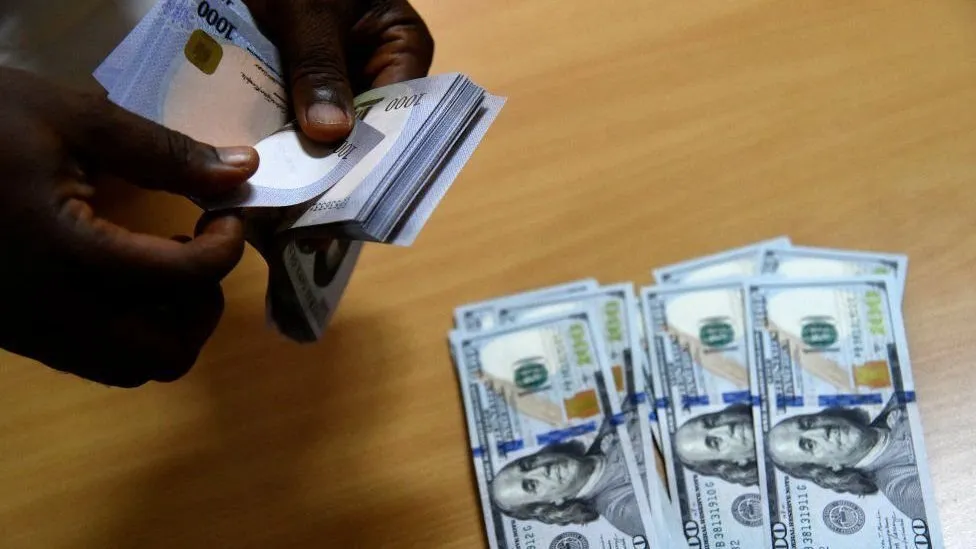In a recent financial development, the Nigerian naira experienced a depreciation against the US dollar on November 6, 2023, culminating in an official market closure at N809.02/$1.
This marks a significant 4.06% increase from the previous exchange rate of N776.14/$1 reported on November 3, 2023.
During the trading session, the naira’s performance saw an intraday high of N1100/$1 and a low of N720.50/$1, resulting in a noteworthy spread of N379.50/$1.
Data sourced from the official NAFEM window reveals that the forex turnover at the close of the trading day amounted to $87.65 million, reflecting an 11.30% decrease compared to the preceding day.
Meanwhile, on the black market, where unofficial forex trading occurs, the exchange rate witnessed an appreciation of 16.18%, with the naira quoted at N1020/$1. Peer-to-peer traders quoted an even higher rate of around N1063.50/$1.
CBN’s Dual Approach
The Association of Bureau de Change Operators of Nigeria has issued a warning to those engaging in speculative activities involving the naira. Aminu Gwadabe, the President of ABCON, cautioned that the Central Bank of Nigeria (CBN) was prepared to take stringent actions against currency speculators.
Gwadabe explained, “What is transpiring in the market and the consistent rebound of the naira can be attributed to the CBN’s dual approach of injecting dollar liquidity and mopping up excess naira through interest rate hikes. This strategy presents a considerable risk for speculators, hoarders, and those attempting to replace the naira with other currencies.”
The naira had been on a depreciating trajectory throughout the year until the CBN initiated measures to clear the backlog of forex demands in banks.
ABCON added, “As we continue to monitor developments, it is prudent to exercise caution when dealing with the naira, as it appears that the CBN has the resources and strategy to sustain its recent successes.”
The association further noted a shift from panic buying to panic selling in the market. BDC operators urged the central bank to provide further clarifications and implement their recommendations to include them in the foreign exchange market.
Gwadabe emphasized that involving BDCs in the foreign exchange market was crucial for maintaining stability and reducing disparities in the overall market. He stated, “BDCs play a critical role in the transaction monitoring mechanism of the apex bank, and their utilization helps correct and moderate potential market fluctuations.”











